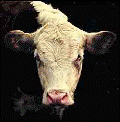Animal Science, Department of

Department of Animal Science: Dissertations, Theses, and Student Research
First Advisor
Phillip S. Miller
Date of this Version
Summer 8-1-2019
Document Type
Thesis
Abstract
Four experiments were conducted to characterize the microbiome of the piglet and observe effects of diet on growth performance and immunity. In Exp. 1, 96 nursery piglets were fed varying carbohydrate sources and in Exp. 2, 64 piglets were fed a soy protein concentrate or soybean meal as-is or supplemented with an isoflavone concentrate. Body and feeder weights were measured for growth performance estimation. Luminal contents and scrapings were isolated for microbial composition analysis. Fecal and blood samples were extracted in Exp. 2 for microbiome and immunity analysis. Diets did not affect growth performance (P > 0.10); however, Exp. 1 piglets had greater average daily feed intake of the experimental diets in phase 1 (P < 0.05). There were no differences in microbiome composition among diets (P > 0.10), but a trend over time (P = 0.11). Differences in microbial composition between sampling locations were shown in Exp. 1 and 2 (P < 0.01). In Exp. 2, diet and time altered microbial diversity (P < 0.001). IL-8 was not influenced by diet, (P > 0.10) but increased over time (P < 0.001). In Exp. 3, IPEC-J2 cells were treated with varying doses of the isoflavone genistein, lipopolysaccharides (LPS), or polyinosinic:polycytidylic acid (poly I:C). In Exp. 4, cells were treated with the isoflavones genistin, genistein, daidzin, or daidzein, and poly I:C or diclofenac sodium salt. Media from the basolateral membrane or apical membrane sides were used for IL-8 ELISA and TEER was measured to estimate epithelial integrity. In Exp. 3, LPS showed greatest electrical resistance (P = 0.014) unlike Exp. 4 that showed no differences in TEER for time or treatment (P > 0.10) In Exp. 3 and 4, IL-8 concentration increased over time (P < 0.01) and was greater in the BLM (P < 0.05). In Exp. 4, IL-8 production from the poly I:C treatment was greater than the other treatments (P = 0.0186). In conclusion, characterization of the microbiome is influenced by diet, time and sampling location. Immune parameters were not different in the in vitro or in vivo trial with isoflavones and diet did not affect growth performance.
Advisor: Phillip S. Miller


Comments
A THESIS Presented to the Faculty of The Graduate College at the University of Nebraska In Partial Fulfillment of Requirements For the Degree of Master of Science, Major: Animal Science, Under the Supervision of Professor Phillip S. Miller. Lincoln, Nebraska: August, 2019
Copyright 2019 Sydney Kinstler